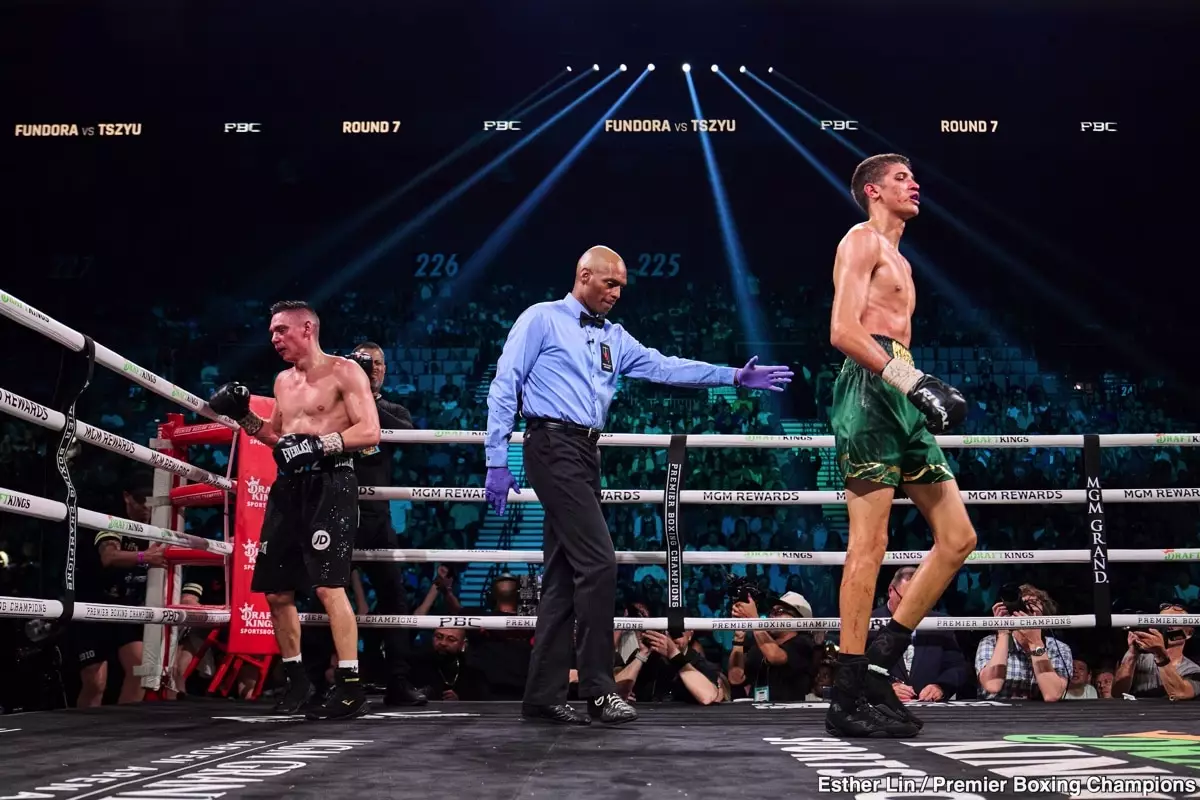Tim Tszyu’s recent defeat against Sebastian Fundora cast a stark light on the often-idealized narrative of resilience and relentless pursuit of greatness. Despite his heartfelt declaration of moving forward and personal growth, the raw truth is that this loss exposes fundamental flaws that question his future as a top-tier contender. Tszyu’s admission of giving his best yet falling short demonstrates humility, but it also highlights a sobering reality: effort alone cannot compensate for technical gaps, strategic missteps, or the evolution of elite competition. His words resonate with determination, yet beneath that veneer lies a figure at a crossroads, facing the harsh realization that his current trajectory may be insufficient to reach the upper echelons of boxing. How fighters confront setbacks—whether with dignity or desperation—often shapes their legacy more than victories themselves. Tszyu’s choice to proclaim a pursuit of greatness is admirable, but it also demands a brutal self-assessment that may reveal the need for radical change.
The Critical Shortcomings and Strategic Failures
A revealing aspect of Tszyu’s recent struggles is the criticism of his choice of opponents and his team’s strategic planning. His management’s decision to pit him against fighters like Fundora and Murtazaliev—particularly when vulnerabilities were evident—illuminates a dangerous disconnect from the reality of his skill level. Instead of Calibrating battles to build confidence and skills gradually, the pattern reflected a gamble that failed spectacularly. Such choices, coupled with perceived deficiencies in his training team, underscore a misalignment between ambition and preparedness. The explosive size and skill of his opponents expose Tszyu’s shortcomings—particularly in pacing, defense, and adaptability—elements that are critical when facing the elite. The brutal truth is that no matter how much he claims to be “moving forward,” without a disciplined recalibration and tactical overhaul, his prospects remain bleak. The division is fierce, with fighters like Ennis, Ortiz Jr., and others not just better but also more evolved—Tszyu needs more than just tough talk to bridge that gap.
Is a Move to Welterweight the Answer?
One cannot ignore a pragmatic solution: dropping to 147 pounds. Historically, fighters often find new life or rejuvenate their careers by changing weight classes, especially when their current division outmatches them in depth and skill. The welterweight division, though less glamorous than the junior middleweights, offers a less congested path to titles and recognition. Tszyu’s size might favor him here, but it’s not simply about cutting weight; it’s about recalibrating his style and mindset to compete against a division that may suit his skills better. Yet, pushing down in weight is not an automatic solution— it demands a renewed commitment to conditioning and strategic adaptation. Whether Tszyu has the hunger and discipline to make that transition convincingly remains to be seen, but it could be a crucial fork in the road whether he ultimately rises or fades into obscurity. Excellent fighters understand that sometimes, staying the course isn’t enough—true greatness requires reinventing oneself entirely.
The Future of Tszyu’s Career: Rebuild or Regress?
Ultimately, the critical question surrounding Tszyu hinges on whether he is willing to accept the uncomfortable truth about his current position or cling to illusions of imminent greatness. The heavy criticism regarding his team choices and opponents suggests a broader issue: a lack of strategic planning rooted in realism. Instead of risking further setbacks against top-tier talent, he might benefit from a calculated rebuild—fighting lower-caliber competitors, sharpening skills, and reassessing his approach. Persistence without adaptation can lead to stagnation, and in boxing, stagnation spells career obituary. The sport demands not just heart but tactical intelligence and self-awareness. If Tszyu refuses to confront these realities, he risks becoming a symbolic figure of unfulfilled potential. In contrast, embracing change and strategizing a long-term plan could still carve a niche for him—though that requires humility and a sound, meticulously crafted blueprint, qualities he has yet to convincingly demonstrate.

